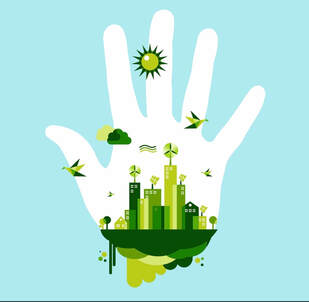Another thing you can do is buy local food. Transporting food requires fossil fuels, and food shipped from another part of the country, or even another part of the world, uses a lot more fossil fuels for transportation than food grown locally. When possible, buy foods from your local farmers' market.
Third, try to avoid using single-use plastics that you throw away after only one use. When you buy something, consider how long it can be used and whether you'll throw it away when you're done using it. Replace these products with renewables if possible.

Drink from your tap to reduce the amount of bottled water you buy. More than 1 million tons of plastic bottles enter the waste stream every year, and buying fewer plastic water bottles can help reduce the number that get sent to the landfill. Also on the topic of water, try to limit the amount of water you use. Do things like installing water-efficient toilets, adding aerators to your sink faucets, setting up sprinkler systems so that they only cover the lawn and not any paved areas, etc. A couple final tips are to find alternatives to using your car, like walking, biking, or taking public transportation; and buying fair trade products, which were produced using sustainable practices and which the workers were paid a fair price for.
I hope these tips are helpful. Reducing our impact on the environment is hard, and none of us are ever perfect, but these are at least a few beginning tips.
 RSS Feed
RSS Feed
